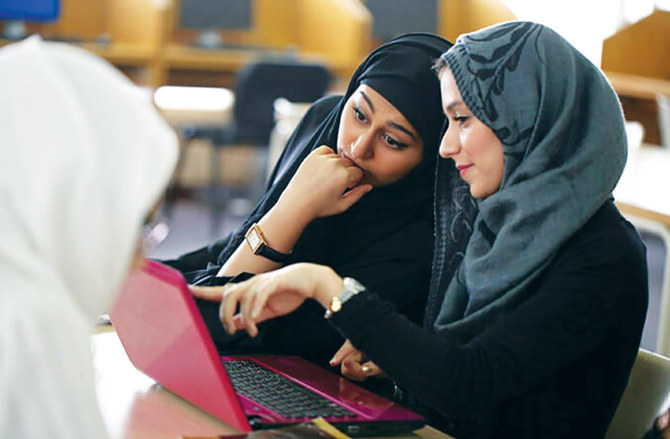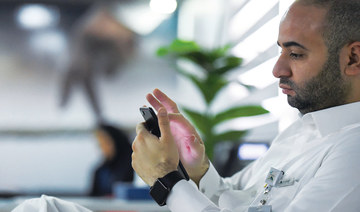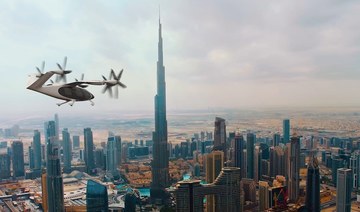RIYADH: It’s not every day that a neighborhood surgeon in Jeddah gives up his scalpel and forceps to pursue an entrepreneurial dream of leading people through fascinating dunes and stretches of Saudi Arabia unless, of course, there is entrepreneurship in the air.
Five years ago, 33-year-old Abdulrahman Al-Saati surprised his friends and family when he renounced his medical pursuits to set up an experiential tourism firm called Destifind that offered people smitten by wanderlust a chance to explore the unique terrain of the Kingdom.
He didn’t plan to make his guests sit up and take notice, but that’s what he did. His company offered beach experiences, camping, and hiking for those eager to get closer to the heart of the civilization.
The result was encouraging. Starting with an annual income of SR360,000 in 2017, the company earned SR3.5 million in 2021.
“We have been expanding year-on-year, and our initiative this year is to transition from an operations-heavy company to a digital platform to become enablers of the tourism community,” said Abdulrahman Al-Saati, the beaming young CEO of Destifind.
The company has earned two million Saudi riyals in the last three months and hopes to close the year between four to six million Saudi riyals. According to Al-Saati, the business activity has gathered pace because of the increasing support of the Kingdom towards small and medium enterprises, or SMEs.
FASTFACT
An increasing number of people are now looking at entrepreneurship as a viable option, and that’s evident with the official numbers that cite SMEs grew from 447,000 in 2016 to 614,000 in 2020.
“The government is always keen to solve any issue that the SME faces, and we are witnessing constant support and follow-ups,” said Al-Saati.
As part of the Kingdom’s Vision 2030 blueprint, it seeks to increase SME contribution to GDP from 20 percent to 35 percent. An increasing number of people are now looking at entrepreneurship as a viable option, and that’s evident with the official numbers that cite SMEs grew from 447,000 in 2016 to 614,000 in 2020.
Demographic advantage
Besides the growing numbers of entrepreneurship, there is also a demographic advantage that’s powering this transformation. According to the US-based industry body Global Entrepreneurial Monitor, or GEM, index, 70 percent of the Kingdom’s population is aged below 30.
Abdullah Al-Amri, a 24-year-old fashion entrepreneur, owns a streetwear fashion brand called Bucketbox. Educated in the US, he wanted to create a niche of his own in the fashion industry and a brand that is contemporary yet woven in the roots of his culture.
“I definitely plan to take it much further. I want to explore fashion styles other than streetwear,” revealed Abdullah, adding that his company has been booking good profits since he launched the brand in Riyadh in 2019.
“It’s great to see the landscape shifting and people becoming more open to create and invest in whatever industry they are interested in,” he added.
Another hopeful development that’s creating a conducive business climate is the state of the affairs of the Kingdom. According to the GEM report, the Kingdom also outscores 43 nations in entrepreneurship, business prospects, business reaction to the COVID-19 epidemic, and government response to the pandemic.
Putting pedal to the metal
There is a flourishing number of business accelerators who are spotting talents and launching them to the next level. One such company is Jeddah-based Blossom, which runs intensive programs for early-stage companies.
“We help startups understand how to get early traction and understand who their early adopters are and how to pitch investors,” said Emon Shakoor, founder of Blossom, one of Saudi’s leading business accelerators that conducts three-month intensive MBA-like programs.
Over the past few years, Blossom has mentored close to 400 companies, with 49 of them receiving early-stage investments. The companies have raised close to nine million dollars in early-stage investments.
Shakoor saw that empowering women was her motive to kickstart this career. “Not enough women tech companies are known,” she stated, explaining that there is an opportunity gap where more male-led companies are getting more investments.
Emon furthermore asserted that Blossom is Saudi’s first female-focused accelerator that operates under an “umbrella of inclusivity.”
All these developments have surely put the region in a dominant position of driving the next wave of entrepreneurship in the approaching non-oil economic era.




















